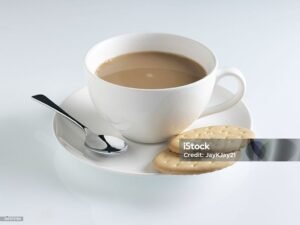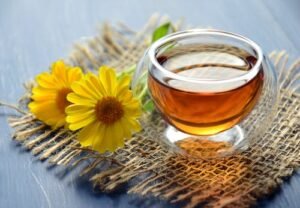Introduction:
Tea has been a beloved beverage for centuries, with a myriad of flavors and styles to suit every palate. Among the popular choices are the creamy indulgence of milk tea and the refreshing simplicity of herbal infusions. While both have their unique charm, it’s crucial to consider the potential drawbacks of one against the benefits of the other. In this blog, we’ll explore the disadvantages of milk tea and the advantages of herbs-based tea, helping you make an informed choice for your next tea-time indulgence.
Disadvantages of Milk Tea:

- Caloric Content: One of the primary drawbacks of milk tea is its high caloric content. The combination of tea, sugar, and milk can contribute significantly to your daily calorie intake, potentially leading to weight gain if consumed in excess. Individuals mindful of their calorie intake or those on a weight management journey may find this a concerning aspect.
- Added Sugar and Sweeteners: Most commercially available milk teas are laden with sugar and sweeteners to enhance flavor. Excessive sugar consumption is linked to various health issues, including diabetes, obesity, and dental problems. Choosing milk tea regularly without moderation might contribute to an unhealthy diet.
- Dairy Sensitivity: Milk tea poses a challenge for individuals with lactose intolerance or dairy allergies. The milk component can lead to digestive discomfort, bloating, and other gastrointestinal issues. Opting for milk alternatives may help, but they often come with their own set of additives.
Benefits of Herbs-Based Tea:
- Antioxidant Rich: Herbal teas, such as chamomile, peppermint, and hibiscus, are packed with antioxidants. These compounds help combat oxidative stress in the body, potentially reducing the risk of chronic diseases and promoting overall well-being.
- Caffeine-Free Options: Unlike traditional teas that contain caffeine, many herbal teas are caffeine-free. This makes them an excellent choice for individuals sensitive to caffeine or those looking for a soothing beverage before bedtime.

- Natural Remedies: Herbs like ginger, turmeric, and echinacea have been used for their medicinal properties for centuries. Incorporating herbal teas into your routine can provide natural remedies for various ailments, from aiding digestion to boosting the immune system.
- Hydration Without the Calories: Herbal teas offer a hydrating option without the added calories of milk and sugar. This makes them a great choice for those aiming to maintain or lose weight while still enjoying a comforting beverage.
Conclusion:
In the battle between milk tea and herbal infusions, it’s essential to strike a balance that aligns with your health and lifestyle goals. While milk tea may offer a creamy and indulgent experience, the potential disadvantages in terms of calories, sugar, and dairy sensitivity cannot be ignored. On the other hand, herbal teas provide a refreshing and healthful alternative, with antioxidants and natural remedies to support your well-being. Ultimately, the choice is yours, and understanding the pros and cons of each option can guide you toward a tea-drinking experience that complements your overall health and satisfaction.





Excellent
Very nice information
Detailed Comparison Indeed!!
Great Work.
We are available for your help